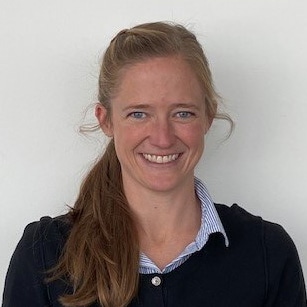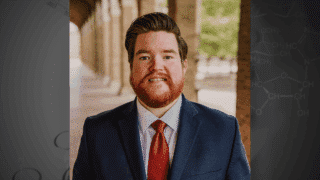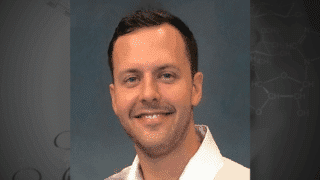 This week, we are thrilled to introduce another one of our new 2022 PCC Fellows. You can learn more about Jenna Goodrum, PhD, and her research in the interview below.
This week, we are thrilled to introduce another one of our new 2022 PCC Fellows. You can learn more about Jenna Goodrum, PhD, and her research in the interview below.
Background
Tell us about your educational background.
I have both undergraduate and graduate degrees in Biochemistry. In 2020, I completed my PhD work at the University of Utah in a molecular biology/biochemistry lab where I focused on how cells maintain healthy and functional organelles during different types of stress.
What educational/professional opportunities helped you reach this point in your career?
I think the most impactful opportunities I had before starting in the anti-doping field came through the research opportunities I had as an undergraduate and graduate student. Being exposed to research in different fields that utilized a diverse set of molecular techniques and working with mentors with different approaches gave me valuable experience and helped me narrow down the type of work I wanted to do. Without those experiences and the mentors I had throughout, I definitely would not be where I am today.
Why did you choose to go into anti-doping research?
I chose to go into anti-doping research for several reasons. First, I liked the idea of getting to mesh my love for sports with my science background and directly contribute to the future of clean sport. More importantly though, I liked how diverse the research and projects in the field were and how there is a direct application for the work I am doing.
Research
What do you find most interesting or exciting about your research area?
The most exciting part of my research area is how dynamic it is. The anti-doping field is constantly evolving to keep up with what athletes are doing, and I love that the problems I get to think about every day are constantly changing.
What are your plans for your PCC-supported research?
My plans for my PCC-supported research are to look at biotin as a potential masking agent for human chorionic gonadotropin (hCG) abuse. It has been well known in the clinical world that biotin can interfere with certain immunoassays, and previous research done by the WADA-Accredited UCLA Olympic Laboratory suggests that biotin supplementation could interfere with the way some anti-doping labs test for hCG. Since biotin supplements are readily available, we wanted to look at individuals who were administered both hCG and a biotin supplement to see if hCG was still detectable in their urine. Ultimately, I do expect to see at least some masking effect of biotin on hCG levels, so it will be important to find potential solutions to mitigate this issue in the affected labs.
What impact will your research have on furthering the field of anti-doping?
The specific impact of my research on the anti-doping field is improve our analytical ability to detect hCG. Beyond this, I will also be looking at how certain physiological parameters change when individuals take hCG. For example, I will examine how parameters in both the hematological and steroidal modules of the athlete biological passport change with hCG administration. This type of information is important and can inform anti-doping scientists about other ways to identify individuals who are or aren’t abusing hCG.
Goals and PCC Benefits
How has PCC funding helped enable your research success?
The PCC funding has helped enable my research success not only by directly providing funds for the research project itself, but also by funding me as a new anti-doping researcher to learn and see how sample testing works in the laboratory. The fellowship has enabled me to work directly in the WADA-Accredited Sports Medicine Research Testing Laboratory in Utah under the mentorship of previous PCC fellow Dr. Geoffrey Miller. There, I look forward to learning and participating in all the different aspects that go into sample testing, in addition to research.
What have you gained from your fellowship experience, and what do you hope to accomplish?
So far, I have been able to gain experience in many different aspects of an anti-doping lab beyond just my research activities. I have been involved in the routine testing our lab does (specifically for erythropoiesis stimulating agents (ESAs), human growth hormone, hCG, and luteinizing Hormone ), method validations, and our athlete passport management unit (APMU), which manages and evaluates athlete biological passports. Besides completing work on my proposed research project, I would like to become comfortable and familiar with the various types of testing the lab performs through my fellowship experience. I believe this is one of the most important aspects to being able to design impactful research projects and identify the areas in the anti-doping field which would benefit the most from further research.
What are your long-term research or career goals?
I would really like to make an intellectual impact in an area I feel passionate about, and while I want to feel excited about the research I am doing, I especially want to feel excited about interacting and collaborating with my colleagues in the field. Anti-doping checks both of those boxes, so right now I am focused on getting familiar with the field as a whole, figuring out where my skills and background fit in, and determining where I can make the most impact.



